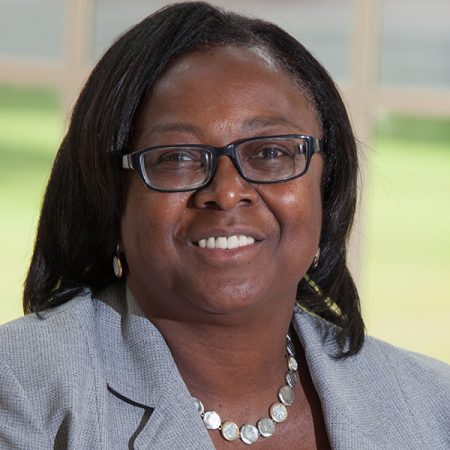
When her second-grade teacher first told Alma Littles that she should become a doctor one day, it clicked.
“From that point on, when somebody asked what I wanted to be, I would tell them I wanted to be a doctor,” Littles said.
Littles did grow up to become a doctor and then a medical educator with a key role in preparing legions of future physicians at the Florida State University College of Medicine.
Now, Black Health Magazine has named Littles one of the nation’s Top 15 Most Influential African-American Medical Educators. The list appears in the magazine’s Black History Month commemorative issue, which goes on sale nationwide Feb. 6.
“The focus is on medical educators creating a legacy for future generations of African-American doctors and health professionals,” said Marcus Oaks, publisher of Black Health Magazine. “These 15 individuals have demonstrated through their body of work, education and lifetime achievements what it takes to make history and are carving cornerstones for our children and grandchildren.”
Littles was the youngest of 12 children in a family of farmworkers in Gadsden County, a rural community located about 30 minutes west of Tallahassee.
“I was encouraged by my parents, teachers and others to reach beyond what I saw in my community growing up and aspire to something greater,” said Littles, senior associate dean for medical education and academic affairs at the College of Medicine. “I was also admonished to never forget where I came from and to remember that there would always be others who need a helping hand or a word of encouragement.”
As her vision of becoming a physician came into sharper focus, she resolved to care for underserved populations — those who lacked access to or couldn’t afford adequate care.
“I lost my father to a second heart attack when I was 14. I lost a sister later on who died after childbirth, and I had seen a nephew die of dehydration,” she said. “The more I learned about medicine and health care, the more it seemed the things I had witnessed should have been preventable.”
After becoming the first in her family to graduate from college, she was admitted to the University of Florida College of Medicine. Upon completion of medical school and after graduating from the Tallahassee Memorial Hospital Family Medicine Residency Program in 1989, Littles set up practice as a family physician in Quincy.
There, she taught medical students and residents while also caring for many patients she had known growing up.
“She has throughout her career personified the best of our medical profession and has taught and influenced a generation of local physicians at the medical school and residency level,” said FSU College of Medicine Dean John P. Fogarty. “There could be no better role model of the ethical and compassionate physician who looks at all patients, rich or poor, with the same patient-focused care and skill.”
The decision to enter academic medicine was a difficult one for Littles, who was named Family Physician of the Year by the Florida Academy of Family Physicians in 1993. She gave up her private practice to join the family medicine residency program at TMH, where she became the director in 1999.
“I felt that I could have a greater impact influencing future physicians who would have a more far-reaching influence on the care of patients than I could ever have alone,” she said.
In 2002, she was named chair of the Department of Family Medicine and Rural Health at the FSU College of Medicine, which accepted its first students in 2001.
Littles, who still lives in Quincy, said she never forgot the advice to remember where she came from.
“I have carried those sentiments with me throughout my own education and career paths,” she said. “Knowing that just one student might benefit from my achievements and be encouraged to reach higher goals themselves provides me with a great sense of pride and motivates me to continue doing what I do —not for individual recognition but because I know that my students and mentees will ultimately do much more for society than I could ever do alone.”




